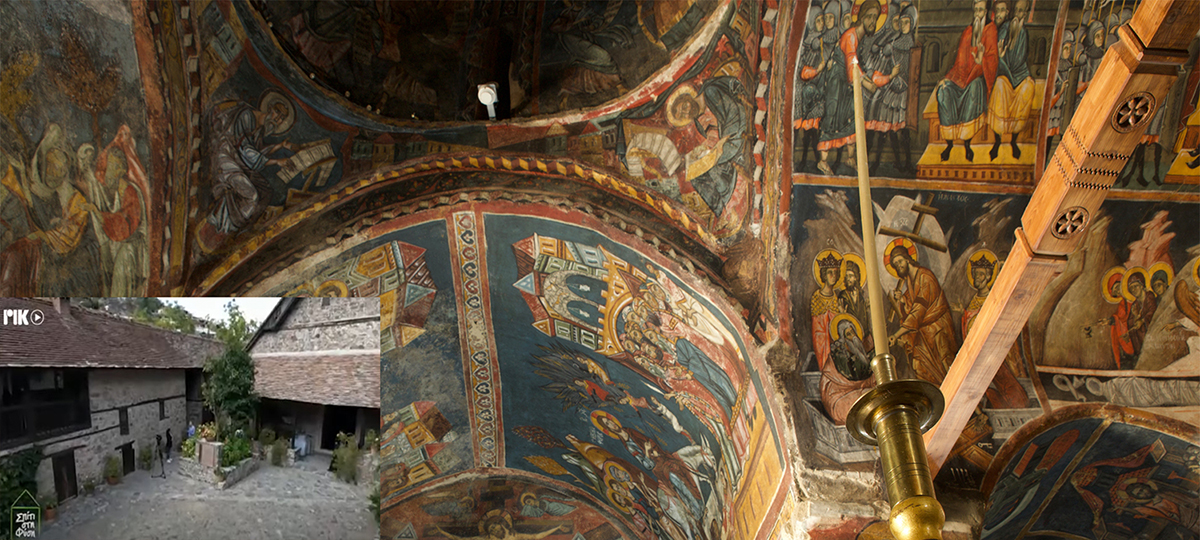RIK’s “Σπίτι στη Φύση” (House in Nature) features APAC Labs research
The work of the Andreas Pittas Art Characterization Laboratories at the Cyprus Institute was featured in the November 3rd, episode of the RIK’s programme “Σπίτι στη Φύση” (House in Nature). The episode, which was centered on the UNESCO World Heritage site of the Monastery of St. John Lampadistis in Kalopanagiotis and its surrounding environment, showcased the collaborative work of the Cyprus Institute’s APAC Labs, the Department of Antiquities and the Department of Forests with the support of the Holy Bishopric of Morphou, aiming at the study, protection and valorization of the important living monument of the Troodos.
Assoc. Prof. Nikolas Bakirtzis spoke about the range of multi-disciplinary projects undertaken by APAC Labs at the Monastery, including digital 3D documentation, material analyses, and studies of the wall paintings, the architecture and the historic graffiti preserved on the walls of the church. Moving beyond the physical structure of the monastic complex, Bakirtzis also led viewers to key locations within the surrounding natural landscape, such as the location of natural sulfur springs and the site associated according to tradition with the baptism of St. Herakleidios by Apostles Paul and Barnabas.
APAC Labs researcher and CyI PhD candidate Mehmetcan Soyluoglu spoke about the dendrochronological analysis performed at the Monastery, which has allowed researchers to better understand both the wooden architectural elements of the site as well as many wooden objects, including benches, iconostases, and portable icons. APAC Labs researcher and CyI PhD student Nicolette Levy spoke about the material studies of the famed wall paintings and painted wooden icons, which can help reveal new insights into the traditions of medieval artists across Cyprus.
From the Department of Antiquities, Chrysanthi Kounnou discussed the cultural significance of the monastery and aspects of the preservation efforts led by the department and highlighted the importance of interdisciplinary collaboration. On behalf of the Department of Forests, Dr. Areti Christodoulou and Andreas Nearchou talked about the environmental dimension of the monastery’s history and more broadly addressed the importance for the study and the protection of the Troodos forest and its historic trees. They also underscored the crucial significance of the collaboration between research groups like APAC Labs and STARC and governmental departments as well as stakeholders and caretakers such as the Church of Cyprus. It’s also worth mentioning the support and engagement of the local priest of Kalopanagiotis, Father Theodoros who also spoke about the significance of collaborative research work for the protection of the important religious site.
